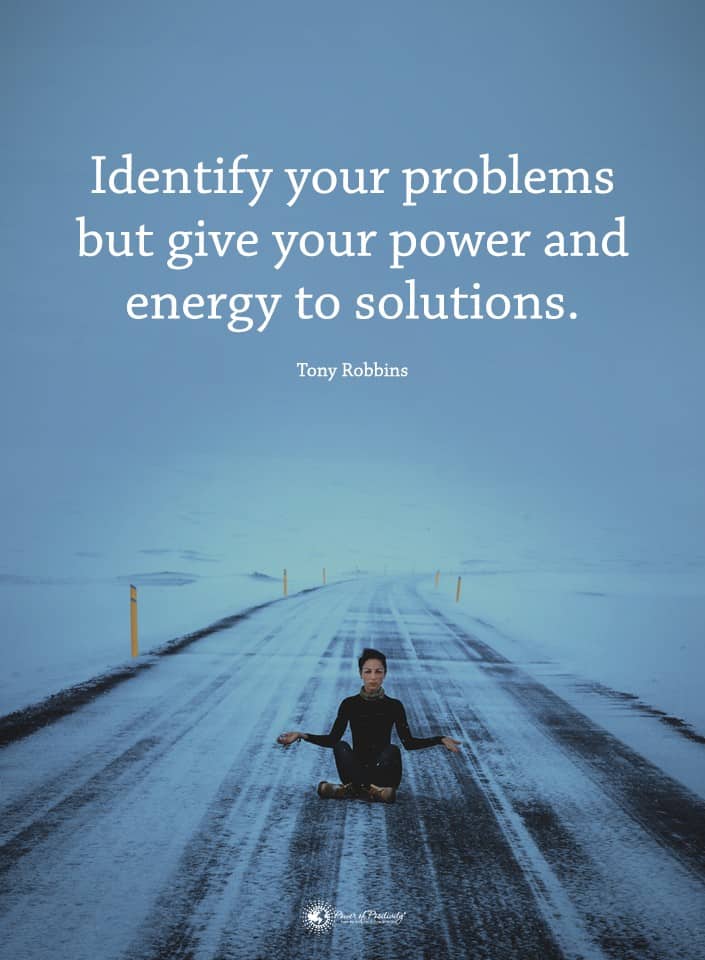FOMO, or the fear of missing out, is an authentic feeling that many people experience. You may find yourself saying yes to things you didn’t want to simply because you didn’t want to miss out. If this has happened to you, then you know the feeling.
Many red flags may indicate someone has FOMO. Keep in mind that just because someone has one of two of the symptoms doesn’t mean they have this problem. The more signs they have, however, the more likely it is that they are suffering from this mental issue.
Red Flags that Someone has FOMO (fear of missing out)
Before getting into it and discussing the signs of FOMO, it’s important to mention that a person can overcome this fear. If you or someone you know has this problem, there are ways to get past it. Not letting the feeling control your life is essential.
1. They are Always on Their Phone
People who suffer from this may spend quite a bit of time on their phones. They will continuously spend their time texting and scrolling through social media, even when they’ve already read every update. Knowing who everyone is dating or what is going on in other people’s lives will be essential to them.
They tend to stare at their phone while walking in a crowded space while also working slowly. Even if a person with FOMO bumps into something, these folks may not put their phone away. This habit leads to absentmindedness, forgetfulness, and a disconnect from the present world.
2. Uncomfortable Being Home Alone
While some people bask in alone time at home, not everyone does. If someone worries that they are missing out, they’ll be anxious and uncomfortable alone at home.
This reason is why they tend to go to the first event they can find. Those with FOMO always have to be somewhere fun and doing something with their friends. Otherwise, they may miss out on inside jokes or photo opportunities.
3. People with FOMO Photograph Everything
If they photograph everything they eat, drink, wear, or do, they may worry about being left out. They will post everything to Snapchat or Instagram, no matter how insignificant it is. A typical cup of coffee will make the social media cut for them, just like every other mundane experience.
4. Watches Every Episode of a Television Show Right Away
Even if they have other things to get done, they’ll still watch newly released movies or television shows. This is because they want to be in on conversations about it right away. They’ll feel like they’ve missed out if they can’t participate in the discussions.
5. Overly-Full Social Calendar
One of the red flags is that the person has a social calendar that is packed full. They’ll even still try to find other events to add to their plan. If they can’t find something to do right away, they’ll spend excess time trying to find a part or function to attend.
6. Worries That They are Missing Out, Even When Doing Something Else
Even when they are having fun and enjoying their time, they’ll be worried about missing out. These folks will think about what everyone else is doing and wonder if they could be having more fun somewhere else.
7. They Constantly Check Their Email
Staying connected is a habit of theirs. They will check their personal and work emails continuously, even if they are on vacation. Missing out on something or not knowing what is going on at every moment is a massive fear of theirs.
8. Backup Plans for Relationships
Those who worry about missing out may have back up plans for relationships. They will be worried about wanting or needing a relationship and not having someone. Having someone they can always call on or go to for companionship is vital to them.
9. Going Places That are Unenjoyable
People who worry about missing out will go places that they don’t like, just to say that they were there. They may also go there with people they don’t enjoy spending time with. Generally, they will go anywhere, with anyone, just to be sure they aren’t missing out on something exciting.
10. They Don’t Say No
Those who worry about missing out always accept an invite. Even if the person has prior responsibilities, they’ll put things off if something better comes up. They may have to wake up early for work, and they will still stay out at a party or bar.
Another thing they’ll never say no about is traveling. They may not be able to afford a trip, and they will still rack up debt on their credit cards. If they don’t have credit cards, they may spend money intended for bills so that they don’t miss out.
11. They Go to Parties or Events Even When They are Sick
Most people would stay at home if they weren’t feeling well, but not people who worry about missing out. Nothing will stop them from going out and having a good time, not even the flu. They may be coughing, have a fever, or also have body aches, and they’ll still show up at the party.
12. They Spend Money When They Can’t Afford To
They may not have extra money, but they won’t let that stop them, either. Their fear is so severe that they will put themselves in debt to do what everyone else is doing. This involves going to expensive bars and restaurants, or going on unplanned and unbudgeted trips.
This could lead to financial ruin for them, and perhaps even losing their home or other investments. Their bills will go unpaid, but they still won’t turn down an invite.
How to Overcome the Fear of Missing Out
Since this fear is all too real and it can ruin lives, it’s essential to learn to overcome it. Even if it doesn’t ruin daily living, it can still make things complicated and can negatively impact their mental health. Plus, it can lead to unhappiness because there is always a sense of missing something.
Learn When to Say No, and Don’t Feel Bad About It
Saying no can be hard when you are worried about letting other people down. It can also be hard when you are concerned about missing out.
Try to remind yourself that there will be other events that you can attend. This isn’t the last time your friends will go out, and it isn’t the last time you’ll be invited somewhere.
Think of what else you have to do or what your other responsibilities are. If you have other plans that evening, don’t ditch them because something better comes along. Likewise, if you have to work early the next morning, make a responsible choice to stay in.
When it comes to finances, make sure you always know how much spending money you have. If the spending money isn’t there, simply stay in and enjoy a night at home. Your bills and well-being should take priority over going to events.
Avoid Social Media and Texting
When you choose to stay home, avoid triggering yourself. If you give in and scroll through the social media timelines, you’ll just upset yourself.
Determine a block of time that would be most beneficial to disconnect. If the events you usually attend are between the hours of 10:00 and 2:00, turn your phone off then. Likewise, if the timeframe falls between 6:00 and 11:00, choose that as your time to disconnect.
Reward Yourself
Forcing yourself to stay in when you think you’ll be missing out can be hard. If you achieve this goal, reward yourself with a fun night out with friends.
Plan a day when going out or going to an event will work in your schedule. Remember also to make sure you’ll have the extra money to go out. It’ll be easier for you to stay home if you have something fun to look forward to.
Have Fun at Home
If you know you’ll be staying at home when others are going out, make it fun for yourself. This will make it easier when you begin thinking about your friends and wondering what they are up to.
Pick up your favorite snacks or treats, choose a favorite movie, and relax. You can invite some of your friends over who are also willing to stay in, too.
You could play games or work on your favorite hobby. Whatever you choose to do, just make sure it’s something you genuinely enjoy.
Final Thoughts on Red Flags that Someone has FOMO (fear of missing out)
The signs that someone has FOMO are easy to recognize if you know what you’re looking for. Remember, one or two of these signs doesn’t indicate the fear of missing out. Letting the symptoms control your life or having many of the red flags is indicative, however.
Learn to enjoy being home by yourself or with a couple of friends. Don’t let the feeling of missing out rule your life and your decisions. Once you can recognize the signs, it’ll be easier to address them and overcome the problem.



















